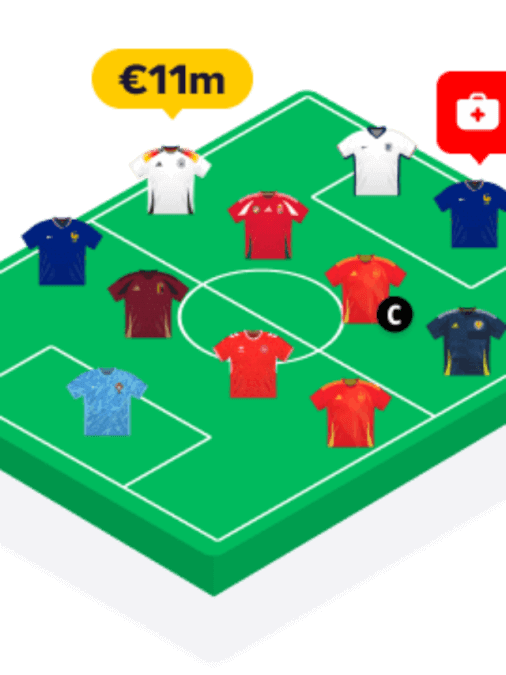As a young athlete, nutrition plays a crucial role in maintaining performance and overall well-being, especially during the off-season.
With less structured training, it is essential to adapt dietary habits to ensure that young footballers remain healthy, energized, and ready to excel when the season resumes.
This article will explore how nutritional needs change during the off-season and provide practical tips for maintaining a healthy diet without the routine of regular training.
1. Understanding Nutritional Needs in the Off-Season
During the off-season, the intensity and frequency of training often decrease, which means a young athlete’s caloric needs may also drop. To ensure optimal health, it is crucial to adjust caloric intake according to activity levels.
Changes in Physical Activity Levels
- Reduced Training: Young athletes typically engage in fewer hours of structured practice and competition during the off-season.
- Adjusting Energy Expenditure: With lower energy expenditure, athletes should consider decreasing their caloric intake to avoid unnecessary weight gain.
Importance of Macronutrients
During the off-season, the focus should be on balancing macronutrients: carbohydrates, proteins, and fats.
- Carbohydrates: These are essential for energy. Even in the off-season, young footballers should include healthy carbohydrates, such as whole grains, fruits, and vegetables, in their meals.
- Proteins: Important for muscle repair and maintenance, protein intake should remain consistent. Sources like lean meats, fish, dairy, legumes, and nuts are ideal.
- Fats: Healthy fats from avocados, olive oil, and nuts should also be included to support overall health and energy levels.
To learn more about the role of macronutrients, check out our article on Understanding Macronutrients: What Carbs, Proteins, and Fats Do for Young Athletes.
2. Adapting Meals for Off-Season Nutrition
Meal Planning Strategies
Without the structure of regular training, it can be easy to fall into unhealthy eating patterns. Meal planning is key to maintaining a balanced diet.
- Creating Balanced Meals: Incorporate a variety of foods from all food groups. This ensures that the young athlete receives essential vitamins and minerals.
- Incorporating Seasonal Foods: Off-seasons are great opportunities to explore seasonal fruits and vegetables, which can make meals more enjoyable and nutritious.
Adjusting Portion Sizes
As energy needs decrease, it’s important to pay attention to portion sizes.
- Guidelines for Portion Control: Consider reducing portion sizes slightly to align with decreased caloric needs.
- Listening to Hunger Cues: Encourage young athletes to tune into their bodies and eat when they are hungry, stopping when they are satisfied.
To dive deeper into portion control and maintaining a balanced diet, check out our article on Why Young Footballers Need a Balanced Diet During Tournaments and Intensive Training.
3. Maintaining a Healthy Diet Without Structure
Finding a Routine
Establishing a flexible meal routine can help maintain healthy eating habits during the off-season.
- Tips for Meal Prep: Planning meals ahead of time can save time and promote healthier choices.
- Incorporating Variety: Mixing up meals can prevent boredom and encourage exploration of new healthy foods.
Healthy Snack Options
Healthy snacks can help keep energy levels stable throughout the day.
- Nutritious Snacks: Options like yogurt with fruit, mixed nuts, or hummus with vegetables are great choices.
- Keeping Healthy Options Available: Stocking the pantry with nutritious snacks can deter unhealthy eating habits.
For more healthy snack ideas, explore our article on Snack Ideas for the Sidelines: Healthy Options for Young Players.
4. Staying Hydrated
Proper hydration is essential year-round, but it can be easily overlooked during the off-season.
- Importance of Hydration: Adequate fluid intake supports overall health and can improve performance when training resumes.
- Tips for Maintaining Fluid Intake: Encourage young athletes to drink water regularly and consume hydrating foods like fruits and vegetables.
Check out our article on Hydration Hacks for Young Footballers: What to Drink and When for more hydration tips.
5. Incorporating Healthy Treats
It’s important for young athletes to enjoy treats while maintaining a balanced diet.
- Enjoying Treats: Encourage moderation and make healthier versions of favorite treats, such as homemade fruit popsicles or whole-grain cookies.
- Balanced Approach: Teach young athletes that treats can be part of a healthy diet when consumed mindfully.
For more on balancing indulgence with healthy eating, see our article on How Young Footballers Can Enjoy Treats While Staying Fit: A Balanced Approach.
6. Monitoring Body Composition
During the off-season, changes in body composition can occur, and it’s essential to keep an eye on them.
- Understanding Changes: Reduced training might lead to muscle loss or weight gain if not monitored.
- Tips for Maintaining Muscle Mass: Encourage light resistance training or bodyweight exercises to help preserve muscle during this period.
For more on the importance of nutrition in overall performance, visit our article on The Importance of Proper Nutrition for Young Footballers.
7. Re-establishing Nutritional Discipline
Setting nutritional goals can be a great way to maintain focus during the off-season.
- Importance of Goals: Establishing clear, achievable goals helps young athletes stay committed to their nutrition.
- Staying Motivated: Consider finding an accountability partner or using a food diary to track meals and snacks.
Conclusion
Navigating nutrition during the off-season is vital for young athletes aiming to maintain their health and prepare for the upcoming season.
By understanding how nutritional needs change, adapting meals, and maintaining healthy habits, young footballers can enjoy the off-season while staying on track.
Remember that proper nutrition is a year-round commitment that supports performance, well-being, and growth.
Key Takeaway Table
| Key Points | Tips |
|---|---|
| Adjust caloric intake | Reduce portion sizes based on activity |
| Focus on macronutrients | Include healthy carbs, proteins, and fats |
| Establish a meal routine | Plan meals ahead and incorporate variety |
| Stay hydrated | Drink water regularly and consume hydrating foods |
| Enjoy treats mindfully | Balance indulgence with healthy eating |
| Monitor body composition | Engage in light resistance training |
| Set nutritional goals | Use a food diary to track progress |
By implementing these strategies, young footballers can effectively navigate their nutrition during the off-season, ensuring they are ready to hit the ground running when the season returns.









